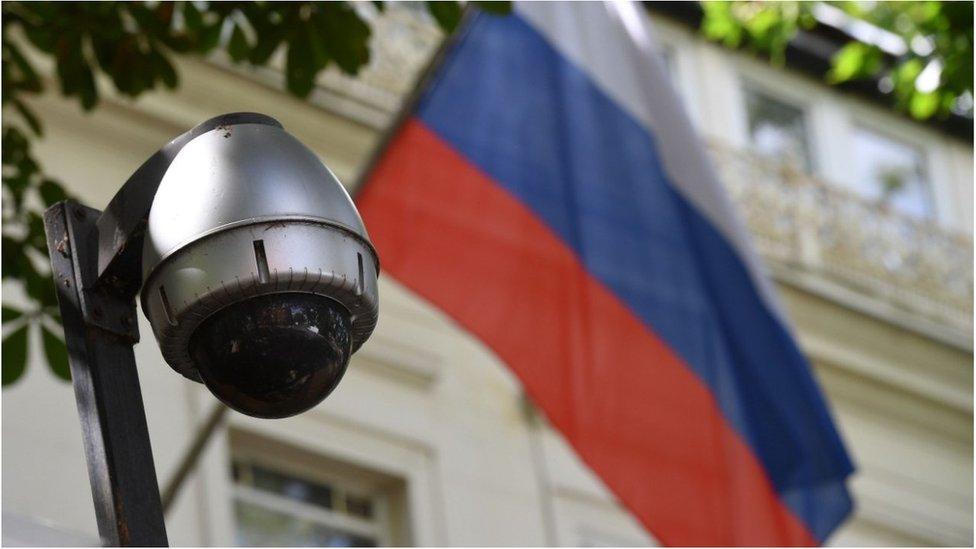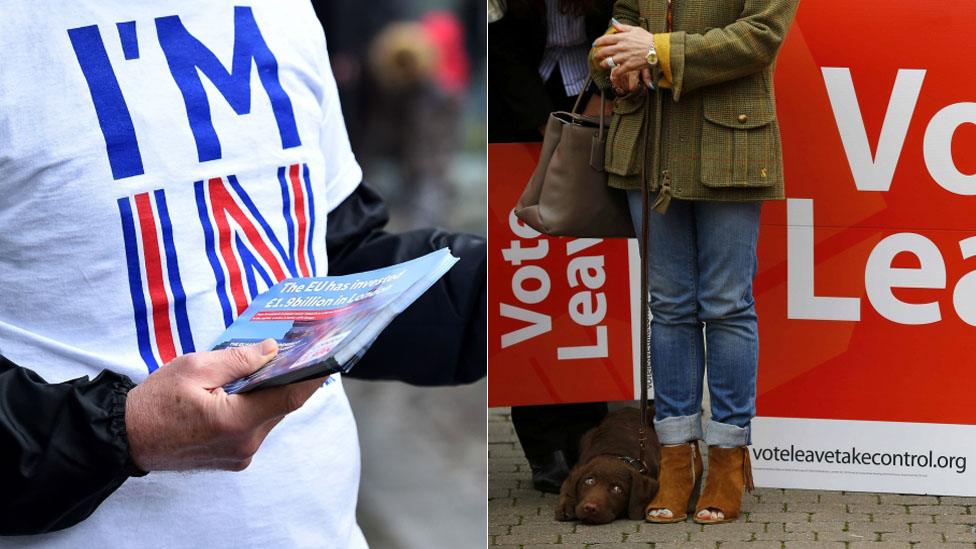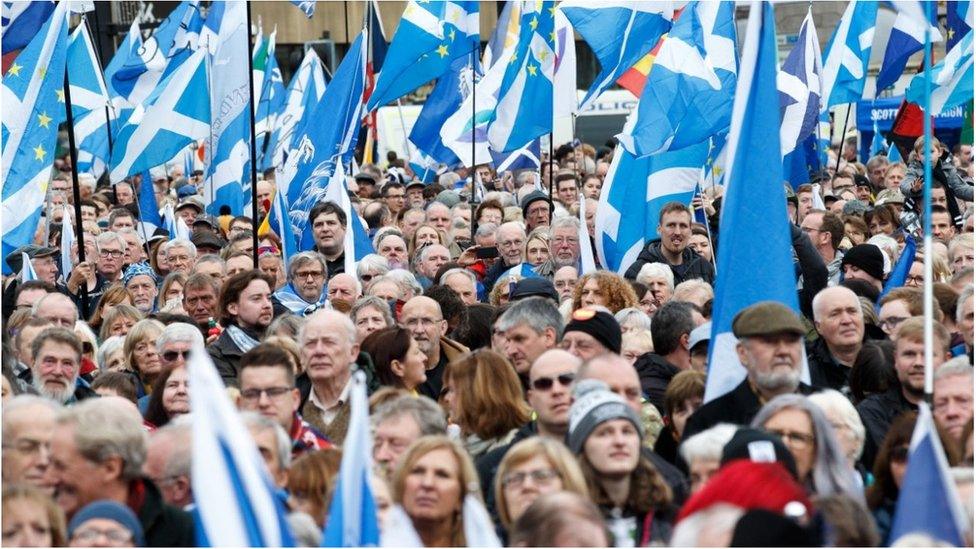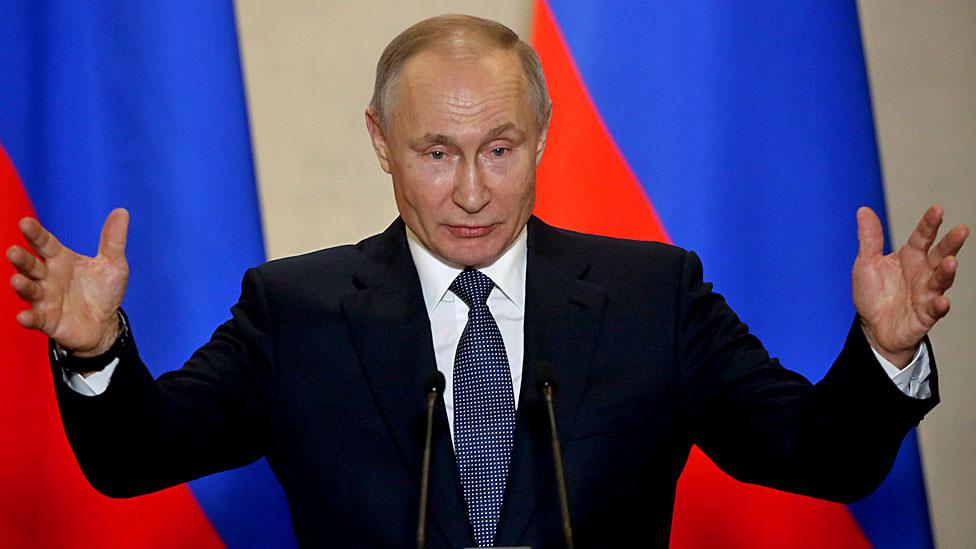Russia report: The unanswered questions
- Published

The long-awaited Russia report has been published with a call for "immediate action" by the government and intelligence services to tackle the threat from the country.
The report, by the Intelligence and Security Committee, external (ISC), covers a number of areas, from allegations of Russian interference in the EU referendum to Russia's "malicious" cyber-activities.
Its authors say the 42-page "summary" is "supplemented with a substantial annex" that gives greater detail but is not being published at this time "in view of the current Russian threat".
Parts of the published report have been redacted or censored (using asterisks) and there remain a number of unanswered questions.
Did Russia try to influence the Brexit vote?
The report does not come to a conclusion on this key question.
It cites 'open source' studies which pointed to: "pro-Brexit or anti-EU stories on RT and Sputnik, and the use of 'bots' and 'trolls', as evidence of Russian attempts to influence the process."
'Open source' means publicly available information and RT refers to Russia Today which, along with Sputnik, is a Russian international news outlet.
A bot is a computer programme designed to mimic human activity (essentially an automated account) and a troll is an account controlled by a human pushing divisive messages for fun or as part of a deliberate campaign.

Research by Swansea University and the University of California, external, for example, identified more than 150,000 Russian accounts that tweeted about Brexit ahead of the vote.
The ISC asked the security service whether it had "secret intelligence" to back up open source studies.
But the report says: "In response to our request for written evidence at the outset of the inquiry, MI5 initially provided just six lines of text. It stated that ***, before referring to academic studies".
And those six lines are not in the published report.
The report calls for "the UK intelligence community to produce an analogous assessment of potential Russian interference in the EU referendum and that an unclassified summary of it be published".
It notes that when it came to the US handling of allegations of Russian interference in the 2016 presidential election, "an intelligence community assessment was produced within two months of the vote, with an unclassified summary being made public".
The government says: "We have seen no evidence of successful interference in the EU referendum".
Its statement goes on to say that there are regular assessments of the threats, external posed by "hostile state activity" and "a retrospective assessment of the EU referendum is not necessary".
What about the Scottish independence referendum?
There is very little in the report on the earlier referendum campaign, in Scotland.
And some of the references to it have been redacted.
But the report does say: "There has been credible open-source commentary suggesting that Russia undertook influence campaigns in relation to the Scottish independence referendum in 2014."
And it refers to reports in Russian state media from Russian election observers that there had been irregularities in the running of the election.

It also points to a report from Ben Nimmo, external, in 2017, which found pro-Russian internet trolls had also been spreading claims the poll had been rigged and pushing for the ballot to be repeated.
And the ISC notes another committee of MPs, the Digital, Culture, Media and Sport Select Committee, in February last year, urged the government to launch an independent investigation into, among other things, foreign interference in the Scottish vote.
On the report's wider criticism that defending the UK's democratic processes appears to have been treated as "a hot potato", with no one organisation taking the lead, the government has pointed to its Defending Democracy programme, set up in 2019.
And it says the National Cyber Security Centre (NCSC) - which is part of the programme - responded to several incidents during the 2019 general election, including cyber-attacks against political parties.
Who are the unnamed individuals?
The report talks about Russian money being used to build influence "across a wide sphere of the British establishment".
"PR firms, charities, political interests, academia and cultural institutions were all willing beneficiaries of Russian money," it says.
And this created a "new normal", whereby Russians very close to President Vladimir Putin are well integrated into the UK business and social scene.
But the report doesn't name names, neither Russian individuals nor British beneficiaries.
"Russian intelligence services will analyse whatever we put in the public domain," it says.
And this would have "the potential to damage the capabilities of the intelligence and security agencies and defence intelligence."
But the report does highlight a number of members of the House of Lords who have business interests linked to Russia or work directly for major Russian companies linked to the Russian state.
Again, they're not named but the report says these links should be "carefully scrutinised, given the potential for the Russian state to exploit them".



- Published21 July 2020
